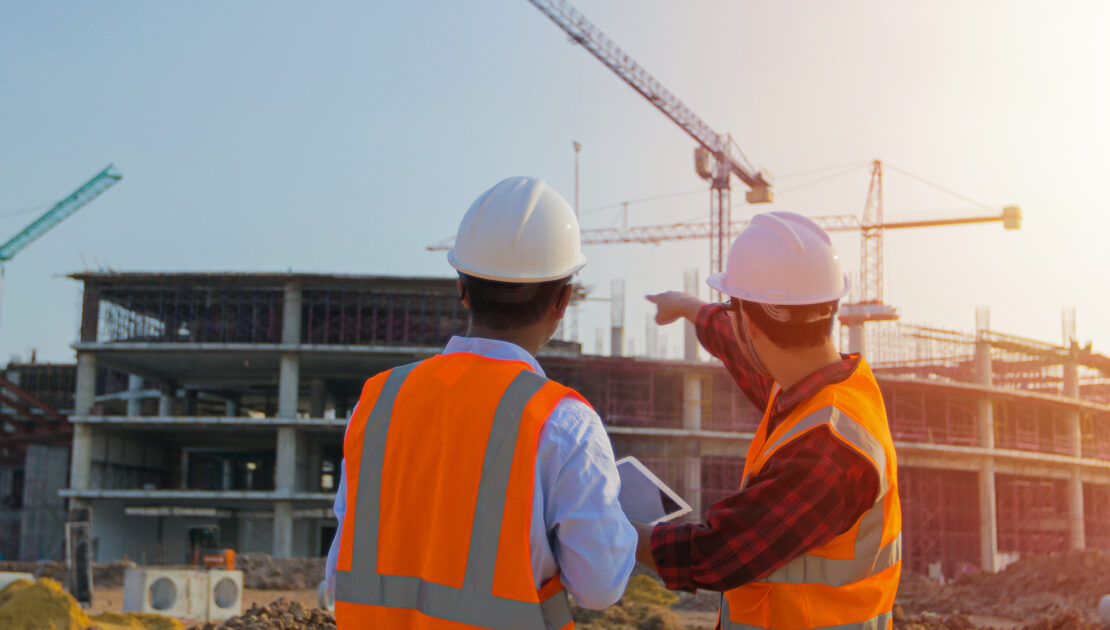Construction Must Take Lead and Grasp Opportunity for Change Post-Covid

CONSTRUCTION MUST TAKE LEAD AND GRASP OPPORTUNITY FOR CHANGE POST-COVID
Changing trends in working locations and travel needs, net zero projects, the green recovery and the need for effective strategic planning were just some of the issues highlighted at the latest Infrastructure Intelligence Covid Recovery webinar on Friday 17 July 2020.
Hosted by Infrastructure Intelligence editor Andy Walker, the expert panel at the “Infrastructure after Covid – what will it look like?” webinar included Tim Chapman, director of infrastructure at Arup, WSP’s executive director for transport, Rachel Skinner, James Harris, policy and networks manager at the Royal Town Planning Institute and Richard Threlfall, global head of infrastructure at KPMG.
Kicking off the event, Tim Chapman said that the Covid crisis had made society rethink many of the things that it had previously seen as essential and this would inevitably have an effect on infrastructure in the future. Travel and transport were being looked at differently, given that many of us were not travelling long distances, especially internationally and it was clear that this would have an impact going forward, Chapman said. He also said that climate change was a crucial issue that had to be tackled otherwise the effects on the next generation would be nothing less than horrific.
Rachel Skinner said that there was a danger of undoing all the progress that had been made in the area of green transport with the government’s current exhortations to travel by car and people’s unwillingness to use public transport due to safety fears. Skinner made the point that the infrastructure sector was in a pivotal position when it comes to leading change post-Covid.
“It’s in our hands – we are the infrastructure professionals and we need to figure it out,” she said. “Covid has shown the limitations of what we have and we know there are new technologies that can make things better. We need to work out how to join things together and at the same time deal with other pressing issues like climate change and carbon emissions. So, we come out of this crisis, faster, better and greener. It’s not all about speed. We need to rethink about what we do and how we do it,” Skinner said.
She also highlighted the need to think carefully about the government’s rebuilding programmes, cautioning that it was not all about speed and making a plea for proper thought to accompany the “build, build, build” mantra. “Levelling up – it’s not just a north-south thing. We need consider how rebalancing is done across the board – economy, environment and social, these need to be considered on every project,” said Skinner.
James Harris said that the transition to a zero-carbon economy would lead to drastic changes in the future. “How can we start to provide infrastructure that supports a zero-carbon future? What will we need to support this change?” Harris asked. He also said that Covid “had given us a glimpse of a low carbon future, now what we need are big structural changes to lock this in. Retrofit, smart energy grids, local charging facilities”.
Unsurprisingly, he also highlighted planning as being crucial. “We need a good planning system in place and to use the planning system to direct infrastructure investment to where it is needed,” he said. “Good strategic planning can make a real difference. We are in super-uncertain times so the system needs to be flexible enough to help to identify low-regret infrastructure investment priorities post Covid-19. Active travel, green and smart energy infrastructure are investments that can help the economic recovery while also accelerating the transition to net zero carbon and increasing our resilience to risk,” said Harris.
Harris also said that the shift to homeworking and a desire for more personal space would also have an impact on the future of planned spaces. “We don’t just want market forces to dictate what we get, so we need to be aware of changing trends and make the most of what people want. We could be sleepwalking into the future without proper planning,” Harris warned.
Richard Threlfall said that he didn’t think that infrastructure would change that much, as much of it was already in place already. Warning against “Covid obsession” he claimed that many of the changes that will be seen going forward “were going to be making anyway and we just need to move more quickly”. He thought that people would move back into the cities as a sense of perspective is gained on safety and other issues. “Flexibility and the ability for people to work at home is great, but it will not be widespread as people will want to work in offices in cities,” said Threlfall.
He also warned of the risk of “an unequal recession which will run contrary to the government’s levelling up agenda,” something which he saw as a real danger. Though he was more optimistic about the government’s focus on the construction sector as a whole. “The government is looking to the sector as a way of getting money into the economy quickly and this could insulate the sector from the worst effects of the recession,” Threlfall said.
Clearly the commercial property sector was going to be hard hit in the near future. “It will be a brave company that builds a lot more office space right now,” said Threlfall, who thought that better opportunities would come the sector’s way via investment in net zero projects, electric vehicle infrastructure and low carbon travel options including active travel schemes involving walking and cycling.
